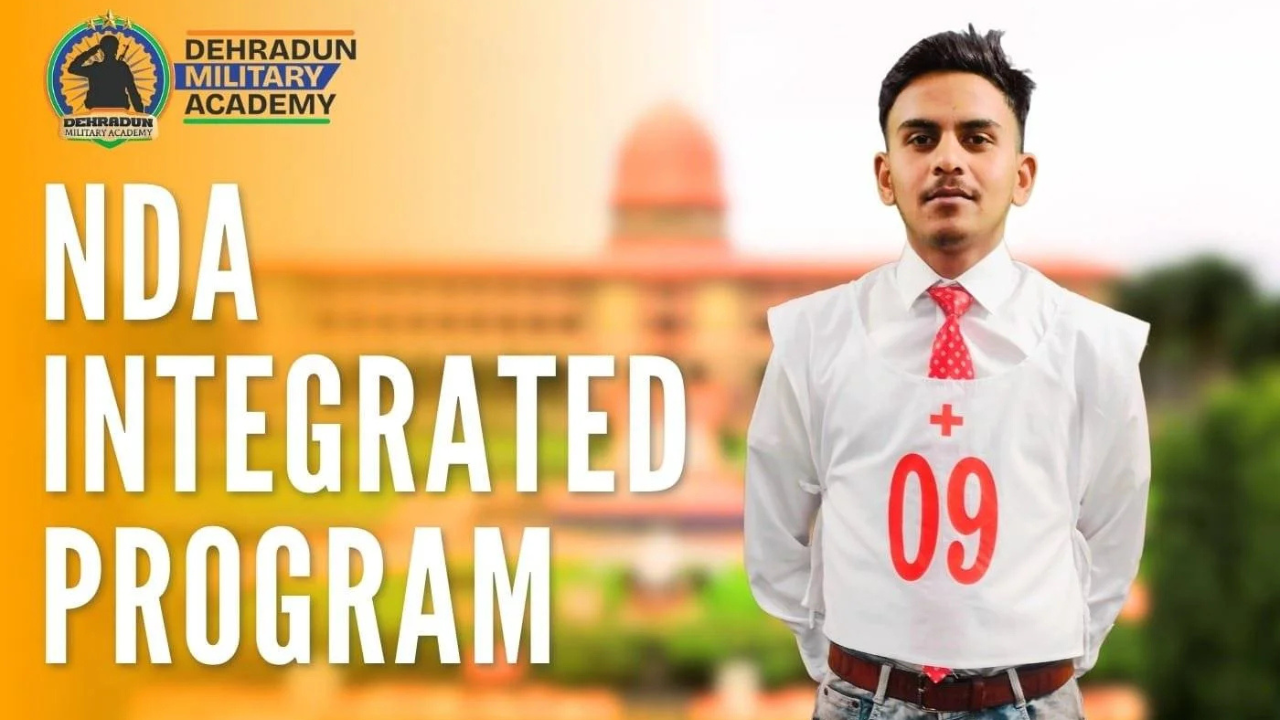NDA Course After 12 – A Complete Guide for Aspiring Candidates
For students passionate about serving the nation and building a distinguished career in the armed forces, the NDA Course After 12 is one of the most sought-after pathways. Every year, thousands of young aspirants take the National Defence Academy (NDA) entrance exam to join the Army, Navy, or Air Force. The opportunity to serve in the defense sector right after school makes this course unique and appealing. But to succeed, aspirants must understand the eligibility criteria, selection process, training modules, and preparation strategies in detail.
Understanding the NDA Pathway
The National Defence Academy, located in Khadakwasla, Pune, is a premier joint training institution for cadets of the Army, Navy, and Air Force. After completing 12th grade, candidates can appear for the NDA entrance examination conducted by the Union Public Service Commission (UPSC) twice a year.
Those who clear the written exam and the subsequent Services Selection Board (SSB) interview undergo three years of rigorous training at NDA, followed by specialized training at the respective service academies. By the end of their course, cadets are commissioned as officers in the Indian Armed Forces.
Eligibility Criteria
To enroll in an NDA Course After 12, aspirants must meet the following eligibility requirements:
-
Educational Qualification:
For Army Wing – Candidates must have passed 10+2 in any stream from a recognized board.
For Air Force and Naval Wings – Candidates must have passed 10+2 with Physics and Mathematics. -
Age Limit:
Generally, candidates must be between 16.5 and 19.5 years of age at the time of commencement of training. -
Nationality:
Candidates must be citizens of India, or subjects of Bhutan/Nepal, or Tibetan refugees who came to India before 1 January 1962. -
Physical Standards:
Aspirants must meet specific height, weight, and vision standards, along with overall medical fitness as prescribed by the armed forces.
Exam Pattern
The NDA exam is divided into two major sections:
-
Written Examination –
-
Mathematics: 300 marks
-
General Ability Test (GAT): 600 marks
-
-
SSB Interview –
-
Intelligence and Personality Test: 900 marks
-
The written test assesses mathematical ability, reasoning, general knowledge, English proficiency, and awareness about national and international events. Candidates clearing this stage proceed to the SSB interview, which evaluates leadership potential, communication skills, psychological resilience, and physical fitness.
Benefits of Joining NDA After 12
The NDA Course After 12 offers multiple benefits that make it stand out among other career options:
-
Early Career Start: Begin your professional journey at a young age.
-
Financial Stability: Earn a stipend during training and secure a permanent job after commissioning.
-
Prestige and Respect: Officers in the Indian Armed Forces are highly respected in society.
-
Adventure and Discipline: Exposure to an adventurous lifestyle with values of discipline, teamwork, and leadership.
-
Comprehensive Education: Alongside military training, cadets receive a graduation degree in Arts, Science, or Computer Science.
Training at NDA
Training at NDA is not just about physical drills; it’s a holistic transformation. Cadets undergo:
-
Physical Conditioning – Running, obstacle courses, swimming, and sports.
-
Academic Training – A degree course affiliated with Jawaharlal Nehru University.
-
Military Training – Drill, weapon handling, field craft, tactics, and leadership exercises.
-
Cultural and Extracurricular Activities – Music, debate, cultural programs, and adventure sports.
This integrated approach ensures that cadets are prepared mentally, physically, and emotionally for their role as officers.
How to Prepare for NDA After 12
Success in the NDA exam requires systematic preparation. Here are some tips:
-
Strengthen Basics: Focus on Class 11 and 12 Mathematics, Physics, and Chemistry concepts.
-
Improve English: Work on grammar, vocabulary, and comprehension skills.
-
Stay Updated: Read newspapers, watch news channels, and follow current affairs.
-
Practice Mock Tests: Regular mock tests improve speed, accuracy, and time management.
-
Work on Fitness: Physical stamina and endurance are crucial for SSB and later training.
-
Join Coaching or Self-Study Plan: Many aspirants opt for specialized coaching institutes that provide structured guidance.
Challenges and How to Overcome Them
While the rewards are great, the NDA journey comes with challenges:
-
Tough Competition: Lakhs of aspirants appear for limited seats; consistent practice is key.
-
High Physical Standards: Begin fitness training early to meet required standards.
-
SSB Personality Tests: Build confidence, leadership skills, and problem-solving ability through group activities and practice.
-
Time Management: Balance board exam preparation and NDA exam studies simultaneously.
Overcoming these challenges demands dedication, discipline, and a positive mindset.
Career Growth After NDA
After commissioning, officers have numerous opportunities for career advancement:
-
Promotions: Ranks rise from Lieutenant to higher positions like Captain, Major, Colonel, and beyond.
-
Specializations: Officers can undergo specialized training in areas such as aviation, marine engineering, intelligence, or strategy.
-
Higher Studies: Opportunities to pursue higher education in India or abroad while in service.
-
Leadership Roles: Officers may lead battalions, squadrons, or warships and represent India in international missions.
Why NDA is a Dream for Many
Joining NDA is not just about a job—it’s about adopting a way of life. It provides:
-
A chance to serve the nation with pride.
-
Exposure to a disciplined, adventurous lifestyle.
-
Opportunities to lead and inspire.
-
A respected position in society with lifelong benefits for you and your family.
Final Thoughts
The NDA Course After 12 is a gateway for young aspirants to transform their dreams into reality. It’s a unique blend of academics, military training, and character development that shapes confident, capable, and courageous leaders for the nation. For students ready to commit to hard work, discipline, and a life of service, this is one of the most rewarding choices they can make after school.







